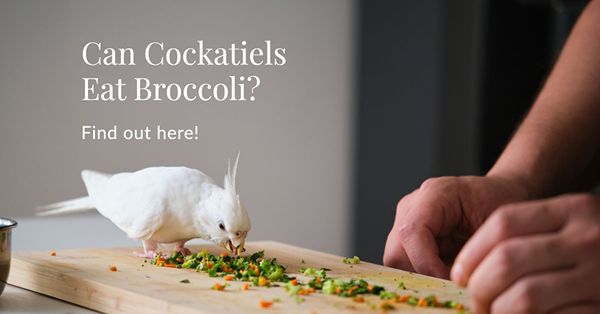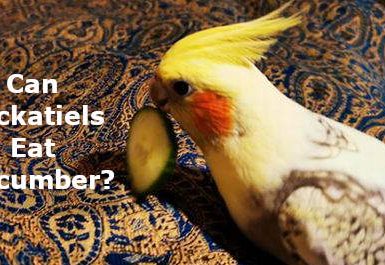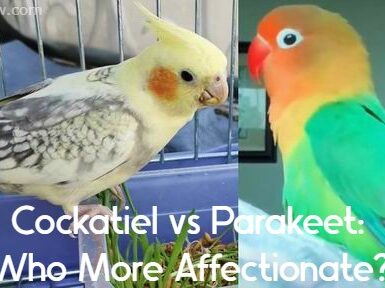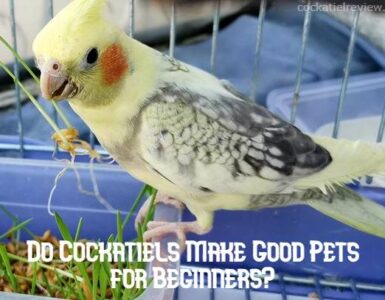
Food Cocketoes Broccoli: Health and Injury
The cockatoos are small beautiful birds, known among family animals and lovers of the wild. But which table is best for their needs? Most people wonder if it is possible to feed tarantula broccoli and if it will not damage their wells. In this article we will try to list all the foods for birds and broccoli.
Birds need different diets to get all the nutrients they need to stay healthy. Broccoli is very healthy, rich in vitamins, minerals, and antioxidants. But what about birds? Is broccoli considered a harmless and necessary part of their diet?
Here we discuss whether serving broccoli to birds is healthy, and what the risks and benefits of broccoli consumption in birds are. We also review how to include broccoli on your menu to ensure maximum benefits and minimal drawbacks.
Benefits and Damages of Broccoli for Parrots
Advantages:
– Broccoli is considered a beautiful source of vitamins (A, C, K, etc.), minerals (calcium, iron, potassium), antioxidants, and other essential substances.
– Broccoli helps strengthen the bird’s immune system.
-Broccoli has the ability to help parrots digest it better thanks to its unique fiber content.
– Broccoli has the ability to help reduce the risk of all types of diseases, including cancer and cardiovascular disease.
Cons:
– Too much broccoli can cause thyroid problems and increased thyroid mass.
– Broccoli can cause gas in poultry.
– Absolutely necessary as broccoli boat tails can stitch parrots.
Broccoli – Key to Vitamins and Minerals
Broccoli is an excellent source of numerous vitamins and minerals important to human health. The vegetable is considered a great source of vitamin C, which helps the immune system strengthen and protect against disease.
In addition, broccoli B vitamins contain vitamins essential for the normal functioning of the nervous system and metabolism. The vegetable is rich in minerals such as calcium, iron, magnesium, and potassium, which help bones and joints feel better, aid in blood pressure recovery, and improve cardiovascular system function.
Thanks to the presence of antioxidants, broccoli helps protect cells from the harmful effects of free radicals, reducing the risk of cancer.
Dangers of Broccoli for Wells – Presence of Birds
Although broccoli is very nutritious, its high content of glucosinolates and isothiocyanates can have a negative impact on bird wells. These preparations can destroy the mucous membranes of the bird’s gastrointestinal tract and can lead to diarrhea and intestinal dystrophy.
In addition, broccoli contains oxalates, which can cause stones in the intestinal tract and may promote urolithiasis in birds, especially those predisposed to this disease.
There are indications that frequent use of broccoli may be associated with an increased risk of thyroid cancer in birds, but a clear link between these causes has not yet been established.
Thus, despite all the qualities of broccoli, its use in birds could lead to serious health problems. To prevent possible problems, it is advisable to consult a bird food specialist.
Feeding broccoli to cocklets: is it necessary?
Clinical studies have shown that broccoli is a costly key to calories and antioxidants. But do you need to saturate your own cocatiel with broccoli?
First, not all birds love broccoli. Even if broccoli is offered in small portions, birds have every opportunity to reject it. Some bird owners have noticed that their cockatiels like other types of greens, such as leafy greens and sprouted grains.
It is important to remember that a cockatiel’s diet is variable and must include all types of food.
If you are going to give your cocatiels broccoli, do not serve them large quantities. Eating too much broccoli can cause stomach problems and bleeding. Start with a few leaves and see how your cockatiels react.
Bottom line: broccoli can be added to the cockatiel menu, but only in small quantities and only if the bird wants to eat it.
Advice from a Veterinarian
Feed your cocking:
- Avoid feeding vegetables that can cause gas in the intestines, such as cabbage, kohlrabi, cauliflower, broccoli, etc.
- Feed only strong, vibrant foods such as fruits and berries.
- Do not feed walnuts, macadamia nuts, or peanuts as they can cause poisoning.
- Remember that cockatoos need a wide variety of foods. Therefore, do not saturate them with only one type of food.
Drinking regime for cockatiels:
- They need fresh water that is not contaminated every day.
- It is important to keep track of how much water your birds are drinking and make sure they get enough of it.
- Do not give Cockatiel tap water, but only bottled water to prevent infection.
General advice:
– Do not put pressure on roosters to move their own table. This is because it can contain materials that are unsafe for their wells.
– If you have questions about what you should feed your cockatiels, consult your veterinarian.
– Make sure you eat healthily, limit unhealthy habits, and keep an eye on your own wells – make sure they are suitable for dealing with board birds.
Examples of appropriate foods
Small portions: feed birds broccoli in small amounts – no more than once or twice a week.
Only strong: offer broccoli only if it is fresh. Otherwise it may cause infection.
After cooking: if you want to serve cooked, tasty broccoli, it is worth cooking because it is more tender and easier to digest for the organism.
What to remember
- Broccoli is a must for birds, but with caution and in moderation.
- It can be cooked fresh or as an appropriate sweetener.
- To prevent oversaturation of some ingredients, do not allow birds to eat too much broccoli.
What loose parakeets can eat
Cocking is considered an omnivorous bird. This means that they can eat a wide variety of both vegetable and animal foods.
With regard to vegetable food, they can eat fruits, vegetables, grains, berries, flowers, and weeds. As a rule, cocatiel likes to munch on branches and eat fleshy parts of plants such as fruits, flowers, and leaves.
Animal food, cocatiel can eat insects, eggs, and sometimes even small rodents. However, their head meal still consists of vegetable food.
Specific plant species that can be fed to cakes are lettuce, endive, carrots, corn, apples, figs, pears, kinks, oranges, strawberries, blueberries, and about almost everything else. It is important to remember that birds only get high quality food that does not contain pesticides or other harmful preparations.
What Shouldn’t Birds Get?
Although cockatoos and parrots are quite curious birds, some foods and preparations can be hazardous to their health. That is why it is important to know what not to feed cocatiel and other birds.
- Chocolate. Contains theobromine, which can cause intestinal infections and mental disorders.
- Salted food. Large amounts of salt are not good for the bird’s wells because there is not at all likely to separate it in the same way humans and other animals do.
- Chips and other fried snacks. These foods are usually very fatty and have the opportunity to cause digestive problems in birds.
- Alcohol. Do not give alcohol to your birds as it is toxic to them.
- Avocados. Avocados contain substances that can poison birds and should be removed from the diet.
This is certainly not an absolute list of things you cannot serve to birds. If you have questions about what can be fed to cocks or other birds, do not take any other risks and ask your veterinarian or other professional about this.
Diet for Cocatiels
– The main rule is that a good and varied diet increases immunity, improves drug substitution, and stabilizes the bird.
– The basis of the diet is formed by cereals of all kinds, for example spelling, oats and barley.
– Fruits and vegetables are equally relevant in Corella’s menu: leafy greens (lettuce, spinach), carrots, zucchini, squash, beets, apples, pears.
– As with fruits, raised cookies, nuts, and cookies have the opportunity to be additional sources of protein, vitamins, and trace elements.
Feeding Frequency
Cockatiels should be fed at least two to three times a day; four to five times is normal.
For successful results, they will demand more food. Therefore, feeding frequency should be increased.
Feed Box and Water Care
– Feed boxes and drinking trays should be cleaned regularly. This should happen in the evening when the birds go to sleep.
– The water in the drinking trough should be refreshed daily. The drinking trough and feed box should be in a raised area that is protected from bird dirt and feathers.
Vitamin and Mineral Formulations
– Vitamins and minerals should be provided in case vitamins and minerals are not available on the bird menu. All totals cannot be loaded.п
– In accordance with the instructions, the substance is not administered to the feed more than three times per week.
The table on the right shows bird welfare requirements
Every poultry farmer is concerned with the welfare and prosperity of his birds. One of the most important qualities of a well is considered the right table.
Balance. Most birds should receive all calories on their own menu, including protein, carbohydrates, fats, vitamins, and minerals.
Variety. Fruits, vegetables, herbs, and other desired products can be added to contrast the menu.
Moderation. Use caution when introducing fresh products. Because they are not all dangerous to birds.
All types of grains, including wheat, oats, and barley, are suitable for dehaaning. Adding all kinds of additions to foods, including fruits and vegetables, can make them healthier. Broccoli can also be included on the menu, but only in small quantities and only after you are certain it is safe to serve to the birds.
Example of a Cockatiel diet
1. primary diet:
– Sunflower seeds
– Cereals (buckwheat, oats, wheat)
– Dried fruits (figs, sultanas, dried apricots)
– Fruits (apple, pear, kiwi)
-Vegetables (carrots, squash, leaf lettuce)
2. morning food:
– Oat flakes
– Bananas
– Cucumber
– Green salads
3. foods that strengthen the immune system:
– Sunflower and pumpkin seeds
– Citrus fruits (oranges, lemons)
– Garlic
– Beets
– Ginseng
Quick Answers
Q: Are Corella’s likely to eat broccoli?
ANSWER: Yes, they have a good chance of eating broccoli. Raw they do not like it much, but they will eat or roast it.
Question: What advantages does Broccoli have over Cocktelles?
Ans: Broccoli is considered a valuable source of vitamins, minerals and antioxidants. It strengthens the immune system, supports eye and skin health, and may prevent the development of cancer. It is also a good idea for foals to use broccoli for disease prevention.
Q: Can broccoli harm bird wells?
Answer: if they drink broccoli in small amounts, it will not hurt them. However, if broccoli is the only food consumed, digestive problems, including intestinal infections, can occur. It is recommended that a varied menu of fruits and vegetables of all kinds be presented.
Question: Is broccoli edible in combination with other birds?
ANSWER: Yes, Corellas can eat broccoli with other birds if they live together in the same aviary and eat the same food. However, you must ensure that every bird gets a significant amount of food according to its own needs, due to competition, to prevent movement and competition to prevent land.
Q: How should Corella Broccoli be carried and in what quantities?
ANSWER: Broccoli should be cooked or baked to facilitate digestion. You can give a few pieces of broccoli to each bird daily. It is important to remember, however, that broccoli is not the primary food for cockatiels, but only a supplement to the main menu.






Add comment